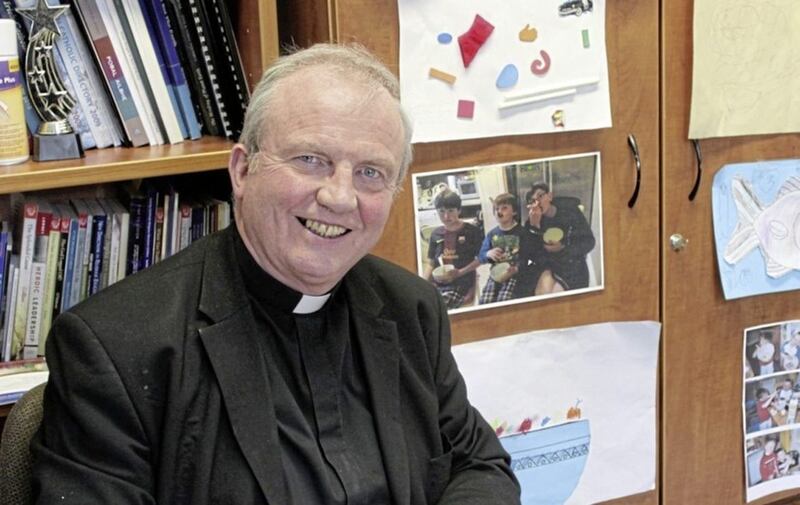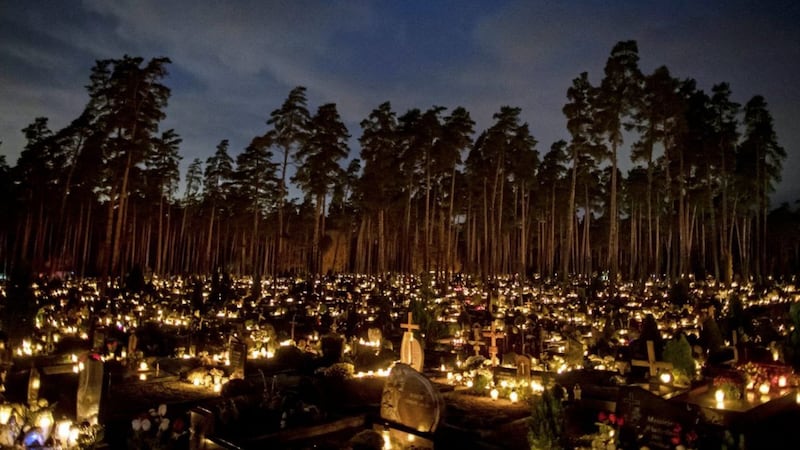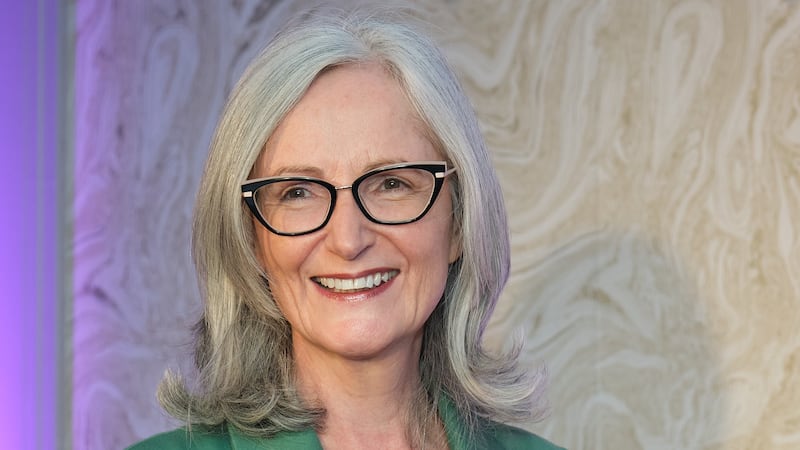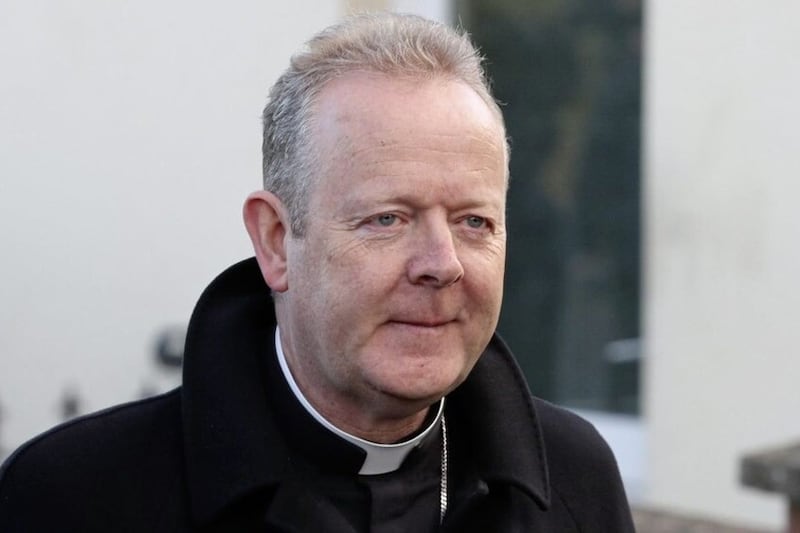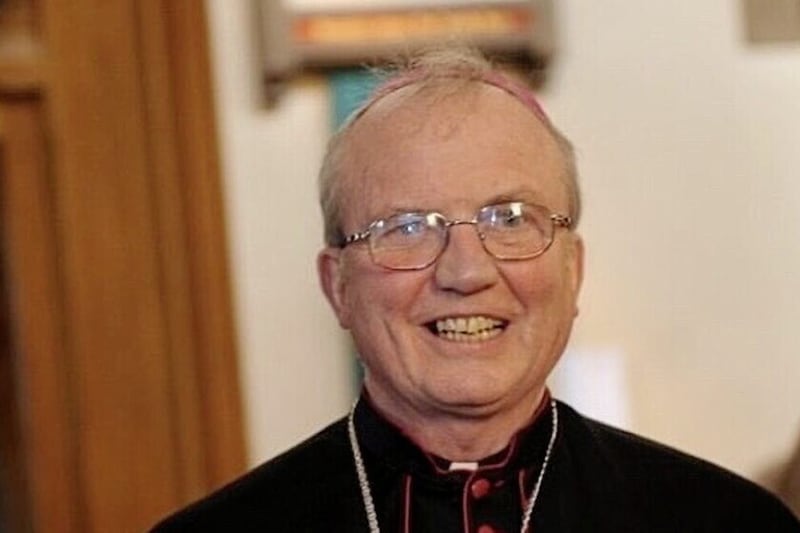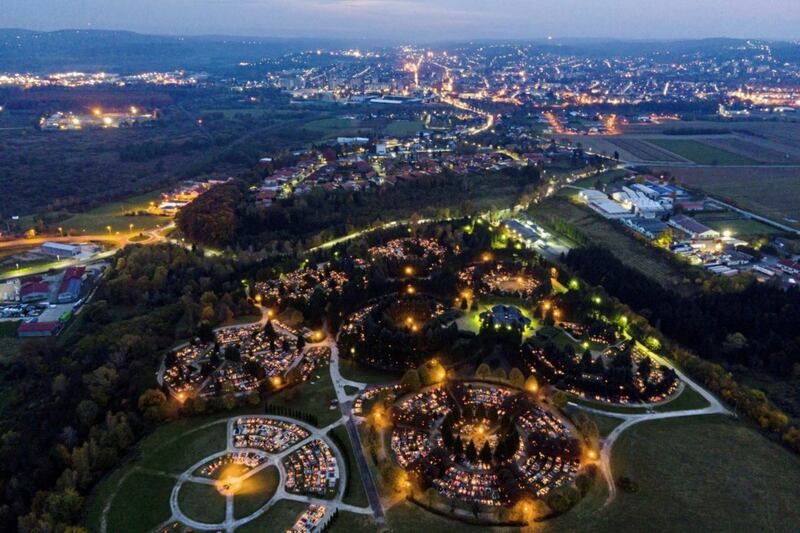
ON Sunday November 22 we will be celebrating the Feast of Christ the King. Our Christian faith believes that the angry world is not just going round in circles, going nowhere fast.
We believe that we are moving to an ultimate reconciliation of all things in Jesus.
Each November 1, All Saints' Day, we celebrate the fact that, in the midst of many prominent mixed-up role models, there is a huge number of unknown saints, impossible to count, blessed role-models who have sought to be agents of reconciliation and peace-making.
These are the saints, the works of God's grace, that we remember every All Saints' Day.
In the Beatitudes in his Sermon on the Mount (Matthew 5), Jesus praises those who are concerned with the welfare of others - those who are gentle, who yearn for what is right and are merciful.
Saints are not frightened or inward looking, focused on their own security. Trust in the strange ways of God looks outward, not afraid of feeling powerless.
Faith believes that mercy, suffering and bridge-building will bear fruit in God's own good time.
The great saints of renewal in the Church looked forward, never backwards, prepared to spend their lives, trusting that God's grace could use their apparent failures to build his Kingdom.
Jesus is always concerned with making things new. He asks us to put out into the deep with him, not to walk down memory lane. He asks us to trust his eternal vision, not our limited imagination.
Saints are those who were open to God's outrageous dream. Saints are those who were not afraid to take risks.
Saints are those who allowed themselves to be used for the victory of the Lamb. Saints were never fixated with their own rights or security.
Worship of the sacrificial Lamb that was slain points saints to the helplessness of the Cross where the victory is won for all time.
Those who worship Christ, come to adore not merely Jesus sitting on a throne but the suffering Jesus of Calvary.
Saints may be frightened by many things, but they can face the future because they know that God's weakness on Calvary is stronger than human strength.
Secondly, like the crowds gathered around the throne of Lamb, saints keep their attention on Christ.
A shared focus on Jesus builds unity, not division. We do not come before Jesus, claiming to be more righteous than some others, unlike the tax collector who stood at the back of the Temple.
As Revelation 7 tells us, we have all been washed clean in the Blood of the Lamb.
Saints build community. At the present time, we can see just how important those bonds are.
The feasts of the Christian year together tell us a coherent story of hope. Fear of the ghosts has been overcome by the victory of the Lamb
Those countries who have done best in facing the pandemic are those which have retained a strong sense of belonging, of social capital.
The 'I'm worth it culture' encourages irresponsibility. Where there is a weak sense of shared identity and purpose, things fall apart when a crisis hits.
The virtues that Jesus proposes in the Beatitudes aim at building trusting communities, not frightened ones.
Jesus knows that such an agenda may well end up with his followers being abused and persecuted.
He knows that selfishness and sin will not easily let go of their power. Prophets almost always suffered rejection. But Jesus calls for saints who will not be afraid to speak about, and work for healing.
There is much need for healing on this island. An economy based on a 'me and my rights' culture will never build outward-looking communities.
Faith in Jesus asks us to look together at him. It has helped countless millions during awful times.
Solidarity will never be built on the shifting sands of self-interest by the strong and the loud.
The feast of All Saints gives thanks and praise for those who believed that love and justice, prayer and self-sacrifice were the only basis for a healthy human society.
They trusted in the wisdom of God's healing ways and not merely in fractious human politics.
That is why we can feel connected with them across the centuries. They are alive in Christ - and we are not trapped in a little 2020 bubble.
They are on our side, looking forward to welcoming us to the wedding feast of the Lamb.
God's people invite others to join in the party which says that life is meaningful, beautiful and sacred.
New secular feasts that celebrate little do not build a people who can face shattered dreams, suffering and the search for meaning.
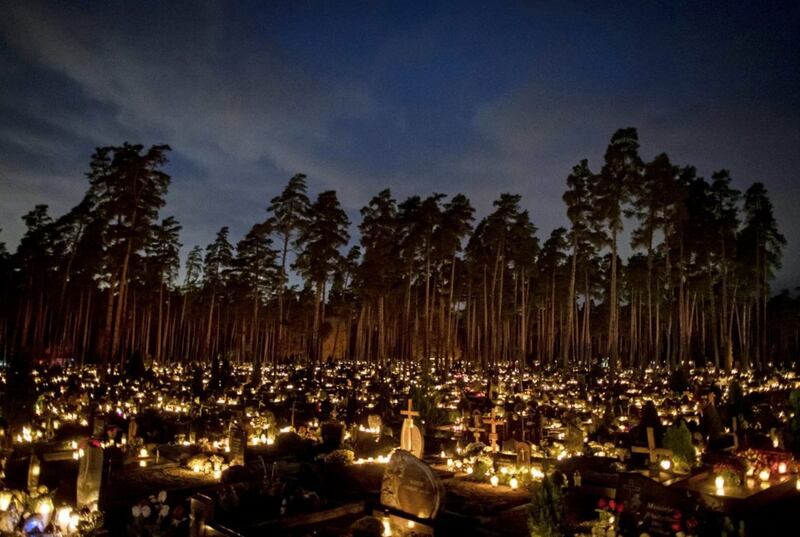
Thirdly, the feasts of All Saints and All Souls were always part of a bigger picture.
Human beings need occasions to celebrate. All Saints' Day and All Souls' Day were linked to public celebrations, all telling and celebrating a coherent story about who we are and where hope lies.
And the story that was told linked the past, the present and the future. We are united in the Body of Christ with people around the world and we are united with all those of every past generation.
Because of that, we look forward to being with the One who will make sense of all human life.
In a post-Christian secular age, we still are offered events to celebrate - but they tell no story. We can stumble from party to party, but ultimately we are binging on junk.
Indeed, the lack of an agreed narrative means that we become increasingly driven by fragmented issues, sometimes full of sound and fury but signifying very little.
When we are asked to bend the knee to the infallibility of an individual's wishes, we can have much to be passionate about but little to believe in.
God's people invite others to join in the party which says that life is meaningful, beautiful and sacred.
New secular feasts that celebrate little do not build a people who can face shattered dreams, suffering and the search for meaning.
The feasts of the Christian year together tell us a coherent story of hope. Fear of the ghosts has been overcome by the victory of the Lamb.
In a post-Christian secular age, we still are offered events to celebrate - but they tell no story. We can stumble from party to party, but ultimately we are binging on junk
Throughout this month of November we will remember the saintly and often imperfect figures from our families and communities.
This is a season to recall them all with love and with forgiveness. Jesus tells us that those who mourn are blessed and that the peacemakers will be called children of God.
We are invited, not just to gather at graves but to worship the wisdom of Jesus who makes sense of the little things of our scarred and imperfect lives.
Eternal life is the goal for all of us - and we have no idea what we are to be in the future.
All we are asked to believe is that, if we seek to follow the Beatitudes, all will be revealed in the fulness of time.
We give thanks for those who dared to believe that they were children of God and who worked so that God's will might be done on earth as it is in heaven.
And we recommit ourselves to celebrate the feasts which tell the story of our dignity and our destiny in Jesus - even when others think we are mad to believe it.
Dr Donal McKeown is Bishop of Derry.
